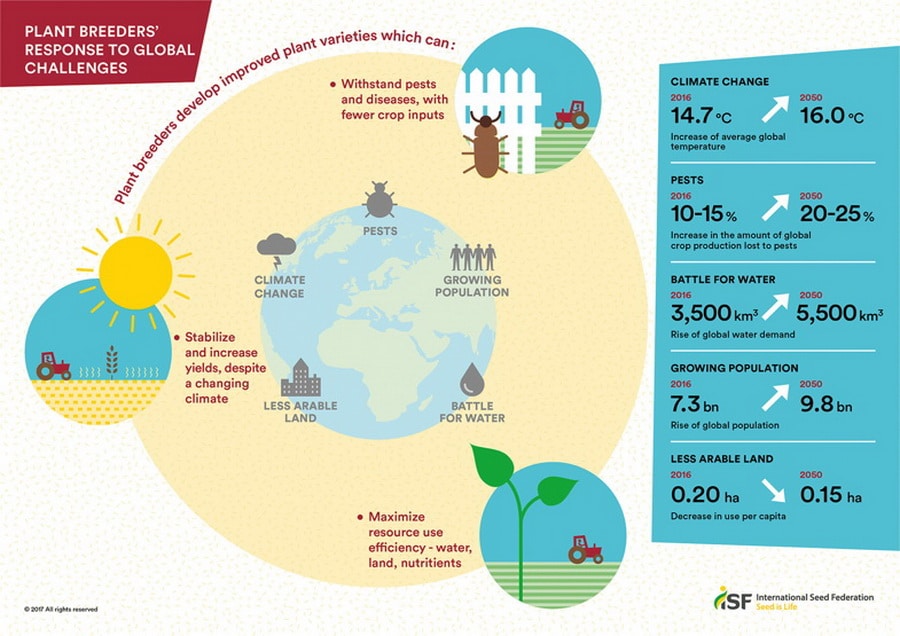Plant breeding innovations must play a role to address the global challenges such as climate change, a growing population, and the need for resource efficient farming systems. This is according to the Transgenic Research article by Petra Jorasch of the International Seed Federation.
Improved plant varieties that can withstand pests and diseases using fewer resources, plants exhibiting stable yield amidst unstable climate, and plants with improved productivity through efficient use of water, land, and nutrients, can help contribute to achieve the goal of meeting the global challenges. Jorasch emphasized the long history of innovation in plant breeding. From selection breeding to precision breeding, the main goals of the breeding methods are mainly focused on increasing genetic diversity and choosing the best performing plants. The new tools of breeding such as oligonucleotide mutagenesis or CRISPR-Cas are more helpful than the previous techniques because these tools allow breeders to do their job in an even more precise and efficient manner.
Jorasch concluded that the latest plant breeding techniques can help achieve sustainable agricultural production and food security, but balanced regulatory oversight worldwide is prerequisite to attain these goals.
Read the complete article in Transgenic Research.
Source: ISAAA












